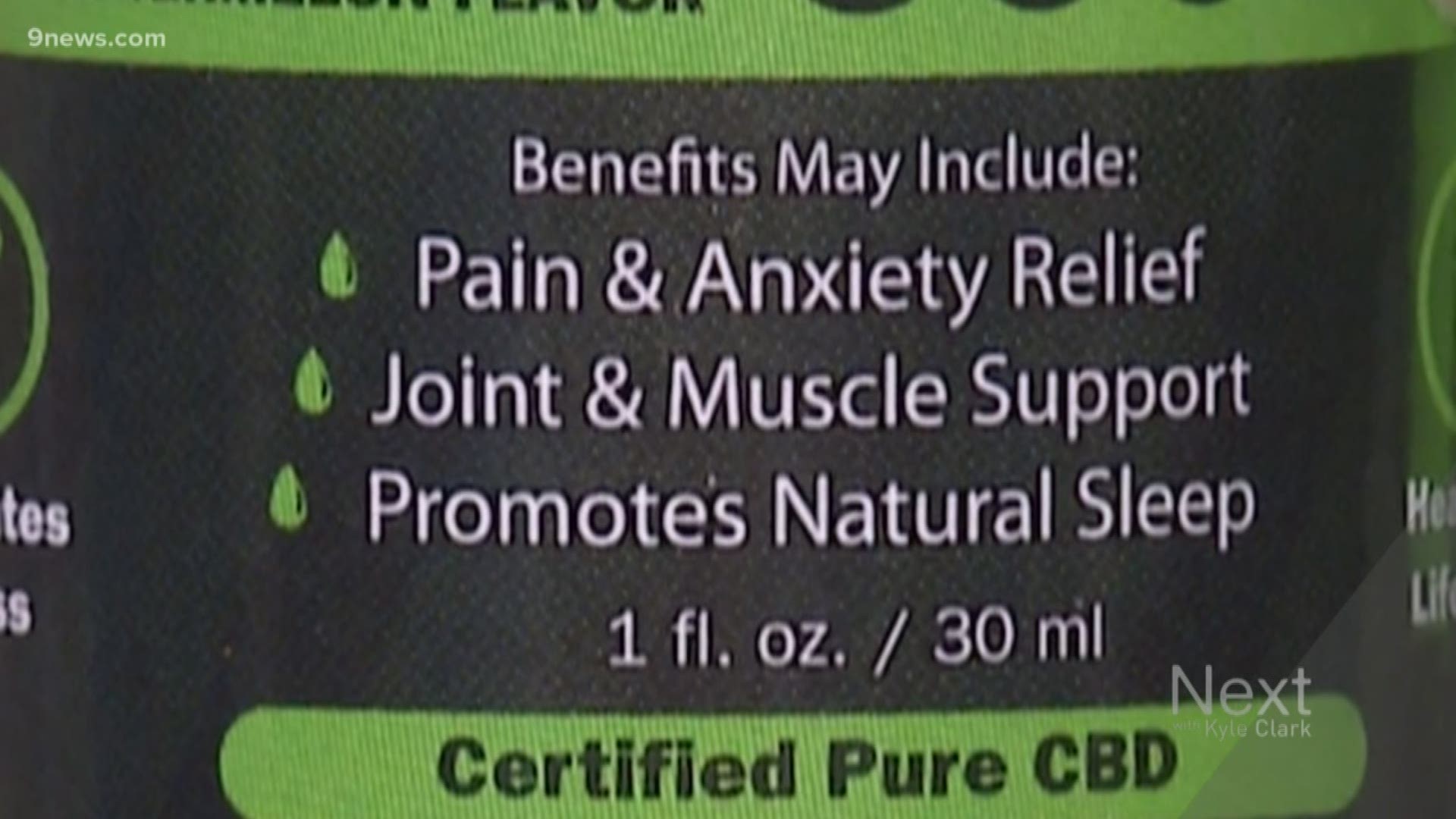DENVER, Colorado — The Federal Trade Commission (FTC) sent warning letters to three CBD companies for making false advertisements Tuesday.
According to the FTC, each company was advertising that CBD treats or cures serious diseases and health conditions even though there is no research or science to back up those claims.
CBD, or cannabidiol, is an ingredient found in marijuana and hemp plants. Unlike THC, which is also found in marijuana plants, it's not commonly thought to make users high. Under federal law, however, CBD is allowed to have trace amounts of THC, up to 0.3%.
The FTC didn't release the names of the company that received the warning letters this summer. They said they hope that by not naming them right away, the FTC might get a better response and changes.
CBD is readily available at businesses across Colorado, but what can these companies actually advertise?
9NEWS sat down with FTC Senior Attorney Keith Fentonmiller to learn more.
How does the FTC identify companies in violation of advertising regulations?
Fentonmiller said they identify companies through internet searches and by following up on tips from the public.
"We are going for the low hanging fruit ... that the claims are so outrageous and so beyond where the science is," he said.
An example of those companies are those making claims that CBD can help treat or cure cancer, Alzheimer's and other conditions — something the research doesn't back up.
It's the FTC's job to catch this kind of advertising and ask the companies to change misleading adds, as well as flag links to studies that aren't scientifically sound.
FTC notifies three CBD companies in March as well
In addition to the companies that received a warning letter in September, three more CBD companies received a similar warning in March.
All those companies are outside Colorado, and the FTC said the issues are being resolved and that they received a good response.
One of those companies, Nutra Pure, said in a statement:
"There was never any advertising materials using any false claims, the website had pages linking to clinical studies, and some of those pages had words like 'treat' on them, but none of those study pages were directly selling anything. The issue was responded to within 48 hours, and the FTC responded immediately verifying receipt of that response. The clinical study article pages were removed under an abundance of caution."
Fentonmiller said what he hopes people will take away from this is to think twice before picking up a product.
"[It] puts consumers on notice to have a healthy dose of skepticism, But also puts the industry on notice too," Fentonmiller said.
What can CBD companies advertise?
Chris Miller, co-founder of Colorado-based Blue Sky CBD said the answer is simple.
"My answer is there is nothing we can actually prescribe this for," he said. "It's not indicated for anything specific. We have a list of testimonial that outline what people have gotten benefits for."
The FDA approved Epidiolex, with CBD, to treat two rare forms of epilepsy, the only medication approved by the feds.
"Anything out of that is just not correct," said Miller. "It's not proven. There is some research out there, and it is published, but it's very little."
Miller said the bottom line is that no promise is the right kind of promise for CBD products sold in stores and online, with the exception of the FDA-approved drug for some types of epilepsy.
What is legal with CBD?
It varies state to state and under federal law.
According to the federal Food and Drug Administration, CBD is allowed by itself but not allowed in food or dietary supplements.
The rules vary state to state:
"The FDA is aware that several states have either passed laws that remove state restrictions on the medical use of cannabis and its derivatives or are considering doing so. It is important to conduct medical research into the safety and effectiveness of cannabis products through adequate and well-controlled clinical trials. We welcome the opportunity to talk with states who are considering support for medical research of cannabis and its derivatives, so that we can provide information on Federal and scientific standards."
In Colorado, the Colorado Department of Health and Environment said the state passed legislation in 2018 and 2019 that allows CBD as an ingredient in food or dietary supplements.
Who is monitoring CBD?
The FDA monitors rules and regulations and quality control around CBD at a federal level.
The FTC monitors advertising.
The Colorado Department of Health and Environment also helps oversee CBD products and companies in the state. That includes testing CBD products and inspections.
In an e-mail they wrote:
"We require that a company have test results on hand demonstrating THC content (<0.3 % THC) and CBD content. We recently began taking samples at manufacturing firms as part of our inspection and general surveillance.
Sample(s) [are] currently being analyzed for microbial contamination. To date, no results have been positive. At this time, our lab is not able to run samples for cannabinoid profile, so we do not have any results.
We took large enough amounts of the sample for microbial to be analyzed for cannabinoids once that lab has that method up.
We anticipate that happening in the next couple of weeks. If results came back as different then what the labeled product indicated, we could and depending on the variability, would take action."
SUGGESTED VIDEOS | Next with Kyle Clark

